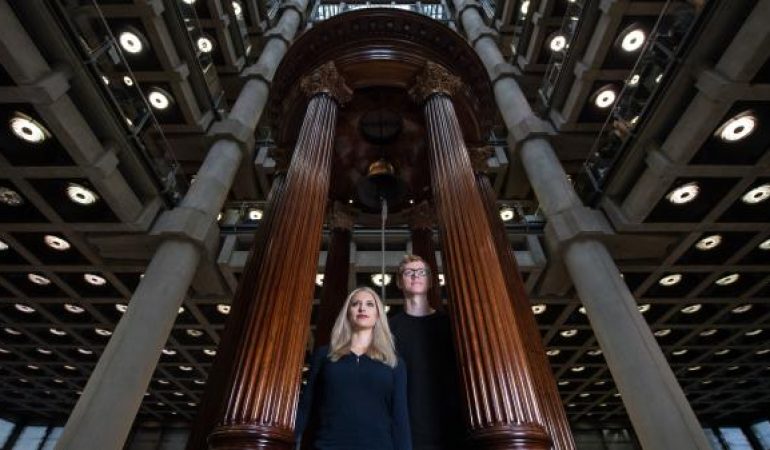Insurers buy cover against tech revolution
Aviva and Lloyd’s of London have set up collaborations with young entrepreneurs to disrupt their own industry
The insurance industry is not renowned as a beacon of forward thinking. Even some of its executives admit that it is dominated by white middle-aged men using outdated technology.
Take Andrew Brem, chief digital officer for Aviva. “Most of our industry is stuck in the stone age. Younger customers expect to manage, understand and buy insurance while running their lives from their iPhones.” It’s Mr Brem’s job to change this.
Fortunately,new ventures are emerging that are hoping to modernise the industry. CBInsight, the research company, tracks organisations that “challenge insurance practice through technology”. A year ago there were 300 start-ups worldwide engaging in such disruptive technology; now there are more than 1,000.
Aviva Ventures, the insurer’s corporate venture capital division, set up the Digital Garage in Hoxton, east London, as a hub to encourage product innovation and development. Armed with an investment pot of £20 million a year, it is aiming to support start-up services and products that make insurance easier for customers, in Mr Brem’s words “collaborating with entrepreneurs to disrupt our industry”.
Its first investment was in Cocoon, which has developed a smart home security device that can be controlled by a mobile phone. The device, the size of a cricket ball, learns what’s normal behaviour for a home and alerts owners to a video link when something unusual occurs. Aviva, which invested $3 million in the company, has been selling the product with a home insurance discount.
Colin Richardson, one of Cocoon’s five co-founders, has been impressed by Aviva’s approach. “Working in an environment that fosters creative thinking and allows for failure is a great fit for any start-up,” he says.
Nor is Aviva the only established insurance company expooring this area. BMW’s financial services unit launched an “innovation lab” to work with early stage companies including Wrisk, which provides personalised insurance combining car, home and travel insurance cover.
As well as supporting small businesses, Lloyd’s of London argues that the route to change is through backing young talent from diverse backgrounds. It gives would-be entrepreneurs the opportunity to present their ideas at its “Dive In” festival, where young people are invited to present ideas for innovations that could have a significant impact on the industry.
Kasia Zawackaja, 25, was a prize-winner at last year’s event with her General Insurance Portal, which uses artificial intelligence to help niche insurance customers, those who might otherwise be overlooked by the industry, to find the right insurance product. Ms Zawackaja, from Belarus, has been in England for three years and joined ES Risks, Lloyd’s broking division of the insurer Epsilon Group, six months ago.
“Coming from outside the industry, I saw that the public needs to be educated about insurance in a friendly way. I wanted to design something technologically simple so my mum could use it,” she says.
Olivia Bailey, 26, was also a prize-winner with her Lloyd’s of London Link, a communication channel using webcams to link underwriters with brokers. “The principle is simple, but there was nothing tailored to our industry” she says. “It was a great opportunity to get my idea in front of senior people at Lloyd’s.”
One of the judges was Oliver Rees, 25, founder of Hook, a cybersecurity company. Mr Rees, who advises a range of industries on technology, believes there’s a danger that big companies see technology as separate from their main businesses. Insurance is so heavily regulated that few start-ups have the knowledge to navigate this area on their own, he says. “Bridging the gap between experience and fresh thinking is the best way to create exciting new innovations.”
Case study
Phoebe Hugh, 27, started out in corporate insurance. “I was blown away by the size of the industry and how old-fashioned it was, but I was excited by the opportunities for innovation. Insurance companies struggle to catch up with consumer demands, seemingly unaware that young people organise their lives with a few taps on their smartphone.”
Ms Hugh was encouraged by her mentor at Entrepreneur First, which helps young people to start companies straight out of university. She left her corporate job to found Brolly, which offers a mobile app bringing all of a customer’s insurance products into a single place. Initial financial backing, business support and office space came from Entrepreneur First.
“Initially, it was just me with an ambitious idea. I was introduced to Mykhailo Loginov who became my co-founder and brought the strong technical expertise needed to complement my insurance knowledge.”




